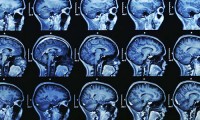-
Microsoft and Adaptive Biotech to create universal blood test using AI
- Source: Verdict Medical Devices
- 524
- January 8, 2018
-
Surgery death rates in Africa are twice global average
- Source: msn
- 611
- January 8, 2018
-
Next-generation medical scanning
- Source: ScienceDaily
- 522
- January 8, 2018
-
BioNTech raises $270M A round to fuel mRNA, CAR-T R&D
- Source: fiercebiotech
- 644
- January 5, 2018
-
Precision editing of gut bacteria– Potential way to treat colitis
- Source: sciencedaily
- 563
- January 5, 2018
-
The Quantified Self, Our Wearable Future
- Source: Digital Salutem
- 1,221
- January 5, 2018
-
4 Ways to Reduce EHR Use-Related Patient Safety Threats Widespread EHR use increases the potential for patient safety risks to occur, so providers must prepare accordingly.
- Source: Xtelligent Media
- 503
- January 5, 2018
-
People Who Sleep Less Than 8 Hours a Night More Likely to Suffer Anxiety and Depression
- Source: neurosciencenews
- 422
- January 5, 2018
-
How to Keep Health Data Safe in the Age of Disruptive Technologies
- Source: HealthTech Magazine
- 559
- January 4, 2018
your submission has already been received.
OK
Subscribe
Please enter a valid Email address!
Submit
The most relevant industry news & insight will be sent to you every two weeks.













